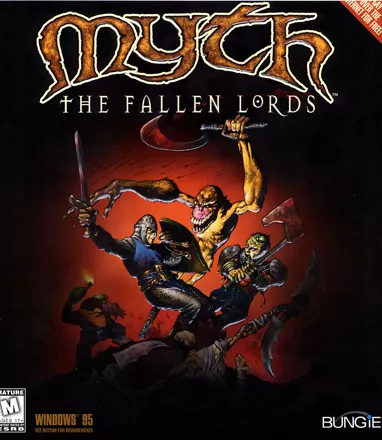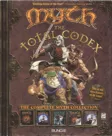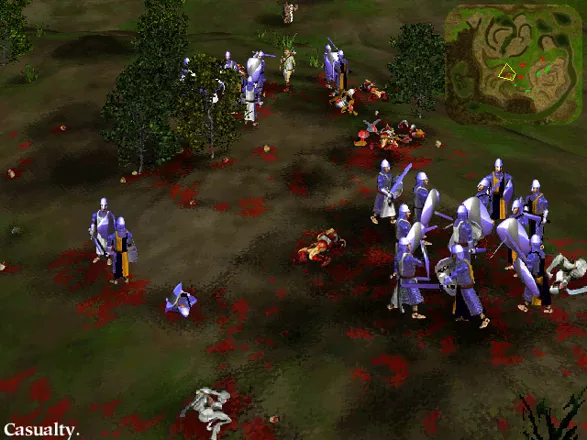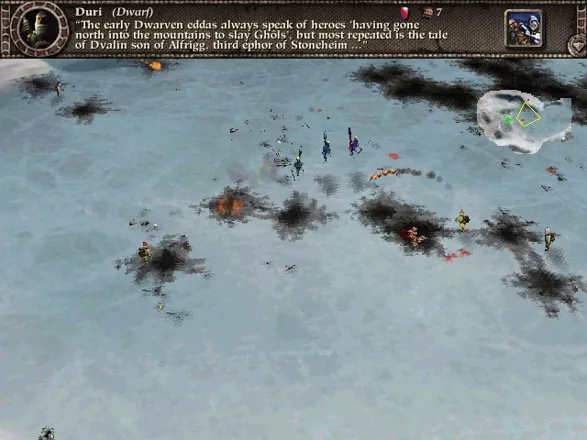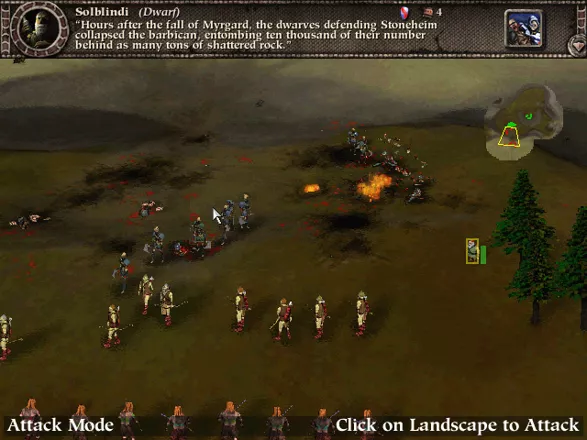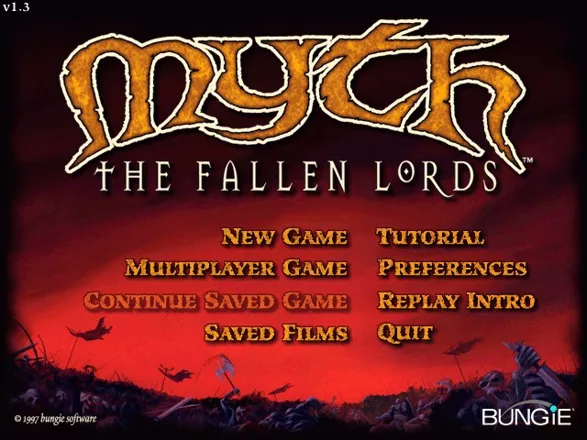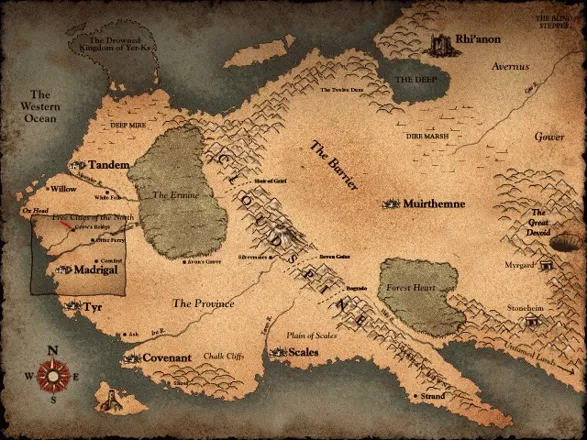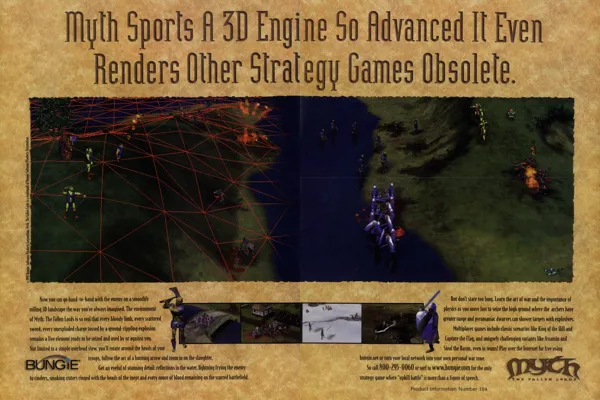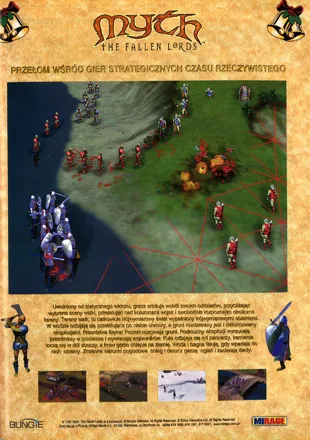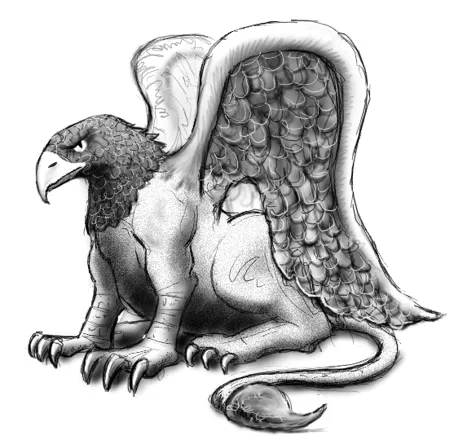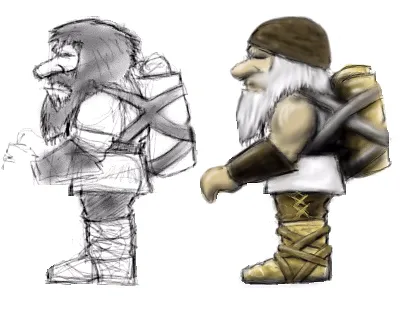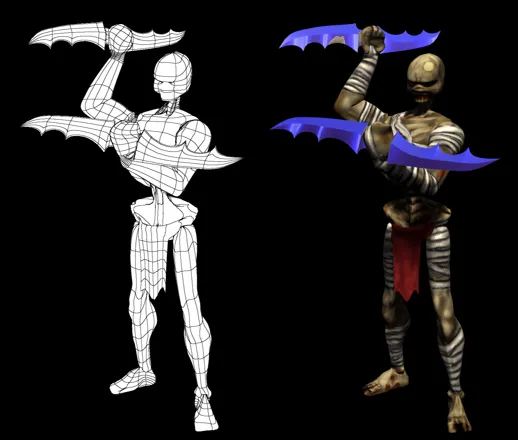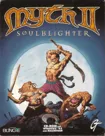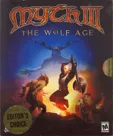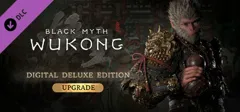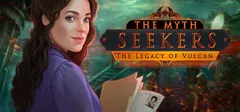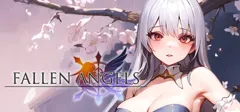Myth: The Fallen Lords
Description official descriptions
Myth: The Fallen Lords is a Real Time Strategy game which pits the evil Fallen Lords vs humanity.
You must take control of archers, explosive-throwing dwarves, dependable infantry, and others to stop the horde of undead and evil from overrunning the last vestiges of good in the world. Battle plague-ridden corpses who detonate themselves in ground-shaking explosions, throngs of axe-wielding zombies, floating spectors who hurl poisoned spears at you, and quick-moving magical creatures armed with sharp blades. Live long enough and you will face the most powerful of the Fallen Lords.
Take control of the high ground and your ranged attackers will be able to shoot farther distances, but the enemy can take advantage of the same situation. Sometimes it may be to your advantage to let the forces of evil thin their ranks for you...
Go online and play vs other humans, using either side you wish, in many modes of play, including a game of capture the flag, but with a ball instead.
Spellings
- 神话2:堕落之神 - Chinese spelling (Simplified)
Groups +
Screenshots
Promos
Videos
See any errors or missing info for this game?
You can submit a correction, contribute trivia, add to a game group, add a related site or alternate title.
Credits (Windows version)
31 People · View all
| Lead Design | |
| Lead Programming | |
| Programming | |
| Level / Scenario Design | |
| Graphics / Artwork | |
| Music | |
| Sound | |
| [ full credits ] | |
Reviews
Critics
Average score: 86% (based on 27 ratings)
Players
Average score: 3.8 out of 5 (based on 49 ratings with 4 reviews)
The Good
Myth is like God's answer to those who like strategy games, but loathe resource management, as well as frantic paces. It's slow, it's thoughtful, and not only in gameplay: Myth's storytelling is a far cry from the usual video game trappings, being told mostly by an unknown narrator and some sparse lines uttered by your units during battle. Such detachment and sparseness isn't bad, it's wonderful: the story and characters only tell you the essential, without falling into dull verboseness. You will hear of Rabican, of Mazzarin, of Shiver and the Deceiver, and you may get to know more about them later, but what will mostly happen is that they'll remain in the background, escaping the terrors of the I-have-to-explain-everything sickness that affects many writers, specially video game ones.
Gameplay is, too, rather contained, sticking to the essentials. There aren't any flashy numbers on the screen telling you how much damage you did, although there are health bars (it's not that mute). Combat is not a dumb and grindy pillow war as units whack at each other until eternity's end; it might be only a bit so if you're playing it wrong. In a somewhat realistic fashion, melee combatants - who have the most hitpoints - take second place to ranged combat; i.e., they are the ones who defend the main damage dishers, archers and artillery, from being chopped up by any survivors closing in with a sword in hand. Playing Myth is not as hard as it sounds, just remind yourself of a few basic tenets:
I. Archer units must focus on other archer units.
II. Artillery (represented by the wonderful dwarves of Myth, who grumpily say "catch!" as they throw - yes - molotov cocktails) - artillery should, generally, focus on slow melee enemies, although if you do a little dancing you can take on archers too (Myth, by the way, has some kickass physics. You can dodge projectiles and see shrapnel fly most magnificently).
III. Melee units should stick around to defend against other melee units. A few advanced units, who can move faster, can be used to harass enemy archers.
And that's (almost, maybe) pretty much it. Also make use of formations - not all of them are very useful, but it's important to know, for instance, when it's OK to have your guys bunched up and when it's not. If archers aren't set up properly - for another instance - they'll shoot your other guys in the back as eagerly as Ian in Fallout 1.
Speaking of shooting and hacking, aesthetically, this is a very satisfying game. Besides the aforementioned physics engine, sounds are very satisfying - swords will thwack meatily, armor will clang, arrows will pass the ethereal body of the undead, who will whisper mysteriously as they die, and magic has more in common with the heavy terrain-scarring and shrapnel-scattering of the molotovs than with the fizzling and sparkling of High Fantasy spellcraft - and also the visuals are very nice. It's all a bit grim and washed down, but Myth gets away with it due to its lack of melodrama and bad writing. It feels like it should: a long-lasting war with many desolate wastelands and destroyed cities, and you're on the losing end. But there are bits and pieces of humor here and there, making it quite charming despite the piles of limbs you leave behind each mission.
Also, there are 2D animation cutscenes that are short and smart and very original, going against the flow of boring 3D.
The Bad
Well, as it's been said in other reviews, controls are a bit awkward. Nowadays, thanks to the fan community, you can play a port of Myth I's campaign in Myth II's updated engine, which makes things like the camera much more bearable. But of course: originally, it was quite square.
The following two points are perhaps faults to some; I actually like them, but I can see why it would annoy others.
I. The voice acting is very good, but there aren't many voice actors. For instance, the guy who does the archers also does the occasional peasant, and Alric - an important figure - shares his voice with your basic warrior unit. But as they have really cool voices and act well, it's no problem at all. Matter of fact, it has its own charm.
II. For the campaign, you don't get to pick what units you want to use. They're all preset. Indeed, it makes the gameplay actually puzzley, allowing little variation in tactics, but here's where the excellent multiplayer makes up for it. There are skirmish modes with a point system: you are allowed a limited number of points to spend between units. Some units are tougher, so they cost more. Other modes are available, such as Capture the Flag. To this day, there is still an active online community, its duration being a testament to the game's quality.
The Bottom Line
Pretty grand. Very different from, say, Starcraft - more tactics, less resource management, better story. Slower, carefully paced. Feels more like a tough war than some power fantasy. Visceral combat: high explosives and nuclear spells which must be handled carefully, lest they blow you up too. Original setting, despite its Glenn Cook-y inspirations; its Dark Fantasy is temperate in an adult fashion, far away from the melodramas and excesses of other grim-n-gritty media. Give it not one but many shots - rejoice in the wonder of being an angry dwarf with a molotov cocktail, and rejoice as your throw bounces off a tree and reduces you to tiny airborne bits.
Windows · by animaldeteta (148) · 2015
Too many gameplay issues to be enjoyable.
The Good
Myth is a new spin on real-time fantasy tactical games. Your army fights the undead on the hills, valleys, and plains of the land, and have archers, knights, bombers, vikings, and other troops in your army. There are 20 missions of varying difficulty, some with twists to perform, like "laying a landmine trap" with bombs placed on the ground, or keeping a knight around home base to look for undead warriors sneaking up from behind.
So what's the spin? The spin is that all this happens on a 3D landscape. You can rotate the map and zoom in and out, in realtime, during the battle.
There are nicely animated cutscenes (animated, not rendered for a change). There is also a good online tutorial on learning the controls of the game.
Finally, the ability to record games, both standalone and networked, leads to some really satisfying replays, as you can adjust the distance and rotation of the landscape during the replay. (Networked game recordings even include the text messages sent from one player to the other.)
The Bad
There are, I'm sad to say, numerous problems with Myth:
Myth was designed by a company that cut its teeth on the Macintosh. As such, Myth was designed with a single-button mouse in mind, and that leads to some annoying control issues. Band selection vs. single selection, the absence of the industry-standard "right-click menu" for actions, and other annoying problems really detract from the game. (Disclaimer: The sequel, Myth II, solves some of the control issues.)
You can't save your game in the middle of a battle. Since some battles require 10 minutes of preperation and can last 15-25 minutes each, this can get really frustrating when you make a stupid mistake and have to go through the entire 10-minute preperation again.
While each mission has an objective listed at the beginning of the game, it is not always clear what needs to be done. Or, more specifically, when you fail a mission, it's not clear why! Again, very frustrating on longer missions.
Finally, the first two or three missions are the only "easy" ones. After that, the games gets uber-freaky difficult to play.
The Bottom Line
Since the sequel corrects many of the problems in Myth, I'd go for the sequel.
Windows · by Trixter (8947) · 1999
An interesting new look at real-time strategy (RTS).
The Good
When I first installed and loaded up Myth, I expected the usual RTS fare with better graphics. I got quite a bit more. Myth brings the scale down a bit by taking the rescource management out of the game. This forces you to take better care of your units, because once their gone, you can't get them back. This means that you can't make a ton of cheap units and send them en masse at the enemy. Attrition has to be taken into account. The majority of strategies that I had been using for other RTS games, just did not apply.
I enjoyed having to come up with new strategies to take advantage of terrain, troop compostition (both friendlies and enemies), and even formations. Planning becomes a very important part of the game.
On the control side, getting accustomed to the camera took a little bit, but its fairly intuitive. The formation buttons also took a while to get memorized. Other than those, and two or three other buttons, the control is pretty much taken care of with the mouse. An in game tutorial also lets you get familiarized with the controls, but is rather short.
The graphics and sound were wonderful. I had a few minor graphics glitches, but a few tweaks to my video card and they went away. And there's just something about hearing the dying(?) screams of the undead rather fun.
The Bad
Like I mentioned above, the controls took some time to get down, and the tutorial, while good, only lasted a short time. There is also no use for a second mouse button, that would have made a few things a little more useful. And while there is the capability to set up groups of units, you have to hit a two button combination to get them back.
The Bottom Line
I liked this game, I actually had to plan strategies to meet the enemy and survive. Other thaan a few control issues, Myth is an enjoyable experience.
Windows · by Narf! (132) · 2000
Discussion
| Subject | By | Date |
|---|---|---|
| For Sale - Unopened New Product | Dan Brown | Nov 28, 2007 |
Trivia
1001 Video Games
Myth: The Fallen Lords appears in the book 1001 Video Games You Must Play Before You Die by General Editor Tony Mott.
Animation
The cinematic cutscenes were animated by hand in a professional animation house in Canada.
Development
The game was known in-house as "The Big Bloody Wargame".
German version
Mission 18 is absent in the German version.
Soundtrack
As soon as the game went by, Myth: The Fallen Lords has gotten its soundtrack released in 1997. No matter it has 19 audio-tracks, its music lasts less than 30 mins.
Tracklist:
- Prologue
- Crow's Bridge
- A Traitor's Grave
- The Siege of Madrigal
- Homecoming
- The Fallen Lords
- The Barrier
- The Five Champions
- Out of the Barrier
- The Watcher
- Seven Gates
- Hearts of the Stone
- Pools of Iron
- Smiths of Muirthemne
- Forest Heart
- River of Blood
- Sons of Myrgard
- The Last Battle
- Epilogue
Awards
- Computer Gaming World
- March 1998 (Issue #164) – Strategy Game of the Year
- December 1999 (Issue #185) - Introduced into the Hall of Fame
- PC Gamer
- April 2000 - #49 in the "All-Time Top 50 Games" poll
Information also contributed by Adam Baratz, Kasey Chang, MAT, PCGamer77 and Rantanplan
Analytics
Upgrade to MobyPro to view research rankings and price history! (when applicable)
Related Sites +
-
Bungie's list of Myth websites
A gazillion websites dedicated to Myth. -
Tales from Myth: The Fallen Lords
PDF version of an official Myth comic which shipped with the game's sequel. Four tales fill in Myth's backstory.
Identifiers +
Contribute
Are you familiar with this game? Help document and preserve this entry in video game history! If your contribution is approved, you will earn points and be credited as a contributor.
Contributors to this Entry
Game added by Trixter.
Macintosh added by Terok Nor.
Additional contributors: Dr. Elementary, Terrence Bosky, Naglfar, Sciere, UV, CaesarZX, Patrick Bregger, Plok, FatherJack.
Game added May 11, 1999. Last modified January 6, 2025.


